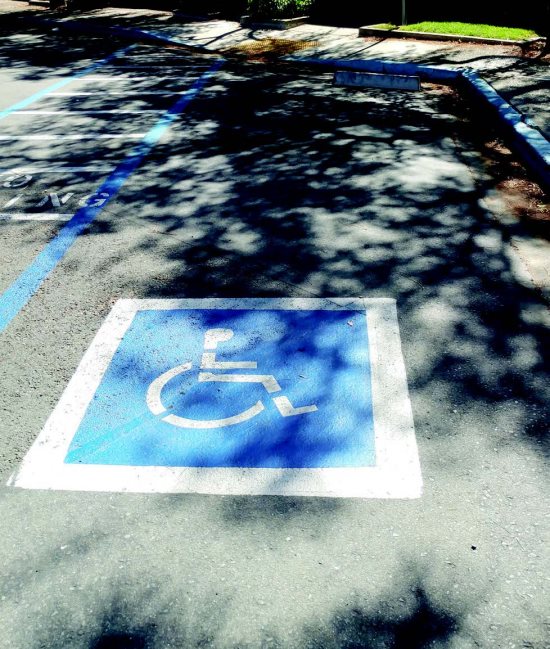
| ||||||
The Americans with Disabilities Act is a federal civil rights law that prohibits discrimination against individuals with disabilities, and requires all facilities and accommodations used by the public to be accessible to individuals with disabilities.
Since 1992 all new construction, additions and alterations are required to comply with ADA standards. Failure to comply or maintain compliance leaves a business vulnerable to a discrimination claim filed by an individual who is denied access to the business or facility. If a business is found liable, it will be responsible for paying the plaintiff's attorneys fees in addition to statutory damages of $4,000 per occasion.
"The number of lawsuits in our community has really escalated," said Jay Lifson, executive director of the Lafayette Chamber of Commerce. Lifson listed Lafayette businesses that have been cited in the past two years, including the Rustic Tavern, Bistro Burger and the Lafayette Park Hotel.
Rick Bowles represents business clients out of his Walnut Creek law office.
"Law firms have clients who go around looking for ADA violations," said Bowles, who noted that the first thing they look for is a handicap parking sign. If there is no sign, it's a good indication there are more problems. "If your parking is right, and other obvious things in the front of the building are OK, they will move on," Bowles said.
These people are not below sending someone in to try to use the bathroom, added Bowles. And the minute that a business lets anyone from the public use its bathroom, the facilities become public, subject to ADA regulations.
"That's where it gets out of control. They file a complaint to get their foot in the door. Then an inspector comes in and finds hundreds of things. The legal process runs up fees, plus $4,000 in fines per visit regardless of damages. It's free money for them," Bowles said. "It's a frustrating area of the law."
Bowles urges business owners to have their property inspected for potential problems. Kim Blackseth, a consultant in Napa who uses a wheelchair, specializes in ADA inspections.
"There is not a business open today in which I could not uncover an ADA violation," Blackseth said. "Find out if you have a problem, and get it fixed. It keeps your legal fees under control. There is no way to win one of these lawsuits." Blackseth echoes Bowles' advice to make sure that the handicap parking section is properly marked and properly signed.
Should a company be cited, essential in the defense of its case is an assessment of the business by a California Certified Access Specialist, who understands the applicability of state and federal construction-related accessibility standards. A CASp assessment runs $2,500, and Lifson said that an assessment was recently completed on the building that houses the Lafayette Chamber.
Blackseth said that the ADA-claims industry is growing at 14 percent a year, with website lawsuits the fastest growth area. "Websites are an extension of your brick and mortar store - courts have generally held this," he said.
Impaired users rely on screen readers or dictation machines, Blackseth said. Text must meet contrast ratios. The website must be navigable by keyboard only or with screen reader software for the visually impaired.
"Most people want to do the right thing," Blackseth said. "Showing the effort goes a long way. It's the right thing to do. And it's the law."
Reach the reporter at:
